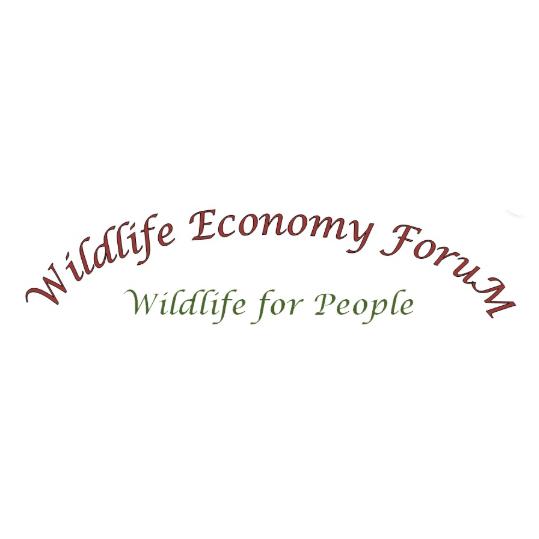
India's Wildlife Economy: Panel discussion on innovating for sustainable use and conservation
India
Panel discussion on Wildlife Economy for India and the way forward.
Click here for a report from the facilitator
We need to urgently sensitise people regarding human-wildlife conflicts in India and its potential negative fallout affecting both the people and the environment. These conflicts will have negative outcomes which are being manifest sporadically across the country and which could then get out of hand destroying wildlife and wild places. The element of a wildlife economy, however, could change lives and perspectives around wild animals that are now inimical to people, being terrible pests at best to existential threats at worst.
The topic of the panel discussion is the wildlife economy and its relevance to India, especially with rising human-wildlife conflicts. There are also international commitments to be met under CBD's Global Biodiversity Framework, the SDGs, and India's National Biodiversity Strategy Action Plan.
Facilitator: Mr Mathen 'Rajeev' Mathew, Wildlife Consultant
- Mr Eugène Lapointe, President, IWMC World Conservation Trust, and former CITES Secretary General
- Ms Deborah Vorhies, CEO, FairWild Foundation
- Dr Francis 'Frank' Vorhies, Director, African Wildlife Economy Institute (AWEI) at Stellenbosch University and research visitor at Oxford
- Dr Harbhajan Singh Pabla, former Chief Wildlife Warden, Madhya Pradesh
- Mr Karnasingh Ghorpade, Businessman and agriculturist, and former President of the Shahaji Chhattrapati Association for Shooting and Conservation
- Dr Michael ‘t Sas-Rolfes, Conservation economist, research fellow at AWEI, and research associate at Oxford
- Mr Sanjay P. Thakre, retired Forest Officer from Maharashtra and former Principal of the Rangers’ College, Chandrapur
 The Wildlife Economy can be defined as sustainable economic activities centred around wildlife conservation, including eco-tourism, regulated hunting (consumptive and non-consumptive tourism), wildlife farming, and the use of wildlife-related products.
The Wildlife Economy can be defined as sustainable economic activities centred around wildlife conservation, including eco-tourism, regulated hunting (consumptive and non-consumptive tourism), wildlife farming, and the use of wildlife-related products.
A Wildlife Economy should be designed to prioritise conservation outcomes while creating livelihoods for local communities. Programmes should incentivise community participation in wildlife protection and habitat restoration.
In India, there is some wildlife economy being pursued. There is the collection of wildflowers of mahua, fruits of mahua and custard apple, gums and resins, leaves of tendu and flame-of-the-forest, honey and lac among others. All these products are either traded locally or sold in their raw form to co-operatives created exclusively for them like the girijan societies.
Regarding community-based joint forest management, there is a need to bring about changes in the frameworks. These should include tribal and rural communities in decision-making. Community-led conservation programmes where local people benefit directly from wildlife-based economic activities should be promoted. And there should be a robust and transparent revenue sharing mechanism with sustainable wildlife management at its core. Robust policies that define clear rules, regulate activities like hunting, and prevent illegal exploitation should be framed. The framework should ensure transparency, ethical practices, and ecological balance.
Small-scale initiatives in areas with abundant wildlife and active community interest should be explored in pilot programmes. Examples could include eco-tourism zones or regulated hunting programmes in regions where species populations exceed carrying capacity and importantly cause human-wildlife conflicts. Target species could be animals like nilgai and wild boar that are abundant and considered pests.
Mechanisms could be established to ensure that revenues from wildlife activities, such as tourism or hunting permits, are reinvested into conservation and shared equitably with local communities. Study countries like Namibia and South Africa, which have successfully implemented wildlife economies, and adapt their strategies to India's unique ecological and cultural context.
Finally, the Wildlife Economy should align with national and global conservation goals to ensure long-term success.
Get updates by email
Through impactful research, stakeholder engagement, and professional development, AWEI is supporting the wildlife economy across Africa. Please subscribe for occasional updates on our work and forthcoming events.
Sign up for a quarterly dose of AWEI insights
In a complex and changing world, AWEI generates strategic ideas, conducts independent analysis on wildlife economies, and collaborates with global scholar-practitioners to provide training and expertise for biodiversity conservation, climate resilience, and inclusive economic opportunities in Africa.
